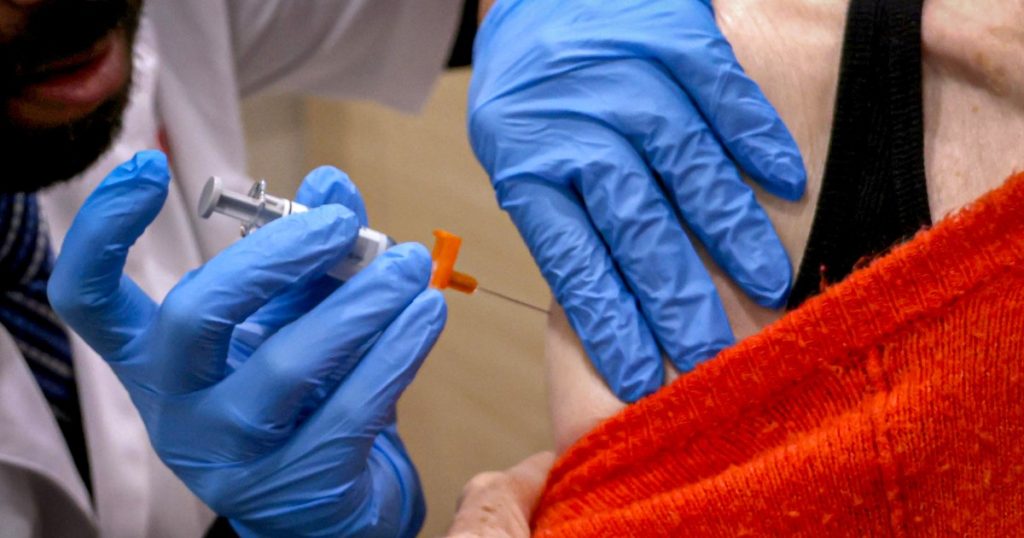The Centers for Disease Control and Prevention has recommended that high-risk adults receive a second updated Covid vaccine to enhance protection against the virus. They suggest that people aged 65 and older and those with weakened immune systems should get a second dose of the 2024-25 vaccine six months after their first dose. This recommendation follows previous authorizations for additional doses for at-risk groups in the spring of 2022, 2023, and 2024. Although no other vaccines are administered at such high frequencies, experts believe that the mRNA vaccines from Pfizer and Moderna remain effective in combatting the virus.
Pfizer’s and Moderna’s vaccines are the first to utilize mRNA technology to stimulate immunity to a virus, which proved crucial in the early stages of the pandemic due to the rapid development process of mRNA vaccines. Despite the CDC’s recommendation for an extra shot, there have been no indications that the mRNA vaccines are failing to work as intended. Some experts theorize that there may be unique aspects of the virus that prevent the body from maintaining high levels of immunity, as suggested by a study from Emory University on hybrid immunity. This study revealed that individuals with hybrid immunity lacked certain long-lasting cells that produce antibodies, unlike those vaccinated against other diseases.
Dr. Ashish Jha of Brown University School of Public Health states that there is uncertainty regarding the longevity of mRNA vaccines compared to older vaccine technologies. Concerns about the virus’s ability to mutate rapidly throughout the year pose a challenge to vaccine effectiveness. Jha supports the updated guidance, emphasizing that maintaining strong immunity every six to 12 months is beneficial. The guidelines aim to address worries about waning vaccine immunity in older adults, which could increase their susceptibility to severe disease and hospitalization. Revaccination helps to boost antibody levels, enhancing the immune system’s ability to combat the virus.
The rapidly changing nature of the virus presents challenges for vaccine development and effectiveness. Dr. Anna Durbin of Johns Hopkins University highlights the constant mutation of the coronavirus, making it difficult to keep up with new strains. Unlike viruses like measles with minimal changes over time, the Covid virus evolves quickly, necessitating frequent updates to vaccines. Ideally, Covid vaccines would be updated promptly to match circulating strains, but delays in selecting and producing new vaccines hinder this process. By administering additional doses of the vaccine, individuals can strengthen their immunity despite potential mismatch with new virus strains, providing enhanced protection especially for high-risk groups.
Experts do not foresee the twice-yearly Covid vaccine becoming standard practice for all age groups. Dr. Jha notes that the immune systems of younger individuals are generally more resilient than those of older adults. The universal recommendation for biannual vaccinations may not be necessary unless the virus becomes more severe, which is considered unlikely by experts. Continuing surveillance and updating of vaccine recommendations will be essential to address the evolving nature of the virus and ensure optimal protection for vulnerable populations.
In conclusion, the CDC’s recommendation for high-risk adults to receive a second updated Covid vaccine aims to boost immunity and safeguard against the constantly mutating virus. Despite uncertainties about the durability of mRNA vaccines, experts believe that revaccination can help address waning immune responses and provide additional protection for vulnerable individuals. Continuous monitoring and adaptation of vaccine strategies will be crucial in navigating the unique challenges posed by the Covid virus and maintaining effective immunity in high-risk populations.


